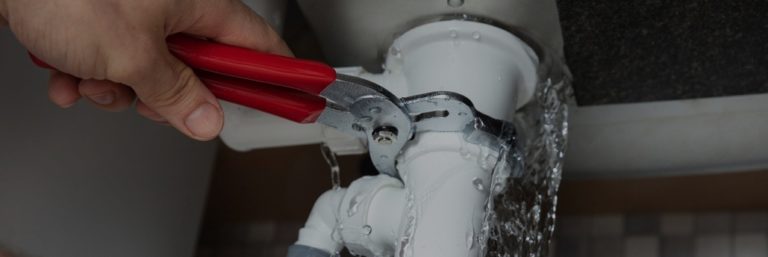How to Inspect If Your Residence Has a Covert Leakage
How to Inspect If Your Residence Has a Covert Leakage
Blog Article
This post which follows in relation to Top leak detection hacks is truly informative. Don't skip it.

Early detection of dripping water lines can alleviate a prospective calamity. Some small water leaks may not be visible.
1. Analyze the Water Meter
Every house has a water meter. Examining it is a proven manner in which aids you discover leakages. For starters, turn off all the water sources. Guarantee no person will certainly flush, utilize the tap, shower, run the washing maker or dishwasher. From there, go to the meter and watch if it will transform. Because no one is utilizing it, there ought to be no motions. If it relocates, that suggests a fast-moving leak. Similarly, if you detect no changes, wait an hour or two and also inspect back once more. This suggests you might have a slow leakage that might even be underground.
2. Examine Water Consumption
If you spot unexpected modifications, despite your consumption being the very same, it implies that you have leakages in your plumbing system. An unexpected spike in your expense shows a fast-moving leak.
A consistent rise every month, even with the exact same practices, reveals you have a slow leakage that's likewise slowly escalating. Call a plumber to completely check your building, specifically if you feel a warm location on your floor with piping beneath.
3. Do a Food Coloring Test
When it comes to water intake, 30% comes from commodes. If the color in some way infiltrates your dish during that time without flushing, there's a leak between the tank and bowl.
4. Asses Outside Lines
Don't forget to inspect your exterior water lines as well. Test faucets by connecting a garden pipe. Should water permeate out of the link, you have a loosened rubber gasket. Replace this and ensure all connections are tight. If you have actually got an automatic sprinkler, it will certainly help get it professionally checked out as well as kept every year. One tiny leakage can waste tons of water as well as surge your water expense.
5. Examine and also Examine the Situation
Home owners should make it a practice to inspect under the sink counters and even inside cabinets for any type of bad odor or mold development. These 2 red flags show a leak so timely attention is required. Doing regular examinations, also bi-annually, can save you from a major issue.
If you know your home is already old, maintain a careful eye on your heating units, hoses, pipelines and so on. Look for stainings and compromising as a lot of appliances and pipes have a life expectancy. They will additionally naturally wear away as a result of wear and tear. Do not wait for it to escalate if you believe leaking water lines in your plumbing system. Call an expert plumber right now so you don't end up with an awful mess in your house.
Early detection of dripping water lines can mitigate a possible catastrophe. Some little water leakages might not be noticeable. Examining it is a proven method that aids you uncover leakages. One little leakage can squander heaps of water as well as increase your water expense.
If you suspect dripping water lines in your plumbing system, do not wait for it to intensify.
5 Signs that Your Home Has a Hidden Leak
Your water bill is unusually high without explanation
Generally, your water bill tends to stay consistent throughout the year as long as the same number of people live in your household year round. The bill might be higher during certain times of the year, such as summer, when your lawn may require more watering than it does in cooler months. However, if you notice a rise in your water bill that you can’t explain, it’s an indicator that there’s a hidden leak somewhere in your home.
You hear running water
One of the biggest signs that you have a water leak is the sound of rushing water when no plumbing fixtures are on and when no water-using appliances are running. If you hear running water in your walls when no water is being used anywhere in your home, locate your home’s main water shut-off valve, shut off your water supply, and contact a plumber at once.
Your home smells musty
Hidden leaks often occur in dark spaces, such as behind walls or under carpeting. Incidentally, darkness and moisture can create an ideal breeding environment for mold or mildew. If you start to smell mildew or the scent of rotting wood or stagnant water around your home, it’s a fair bet that a leak is the culprit.
You find wet spots around your home
The wet spots usually show up as moist areas in your carpeting. If your home has a basement level, puddles on the floor could indicate a slab leak. Outside, unexplainable puddles or lush, green patches in your yard often mean that there’s a leak in your sewer line or main water line.
You have stains, bubbles, or condensation on your walls/ceiling
Stains or condensation on your walls or ceiling are both major signs of a hidden leak. Also, drywall (AKA. sheetrock) is very absorbent, and as it takes on more water from a leak behind a wall, it will start to bubble, swell, or warp. If you see this happening in your home, don’t wait to contact a plumber before the water damage spreads.
https://www.ezflowplumbingaz.com/blog/2019/june/5-signs-that-your-home-has-a-hidden-leak/

I recently found that blog post about Locating water leaks when doing a lookup on the internet. Loved our review? Please share it. Help another person find it. I appreciate reading our article about Detecting hidden plumbing leaks.
Report this page